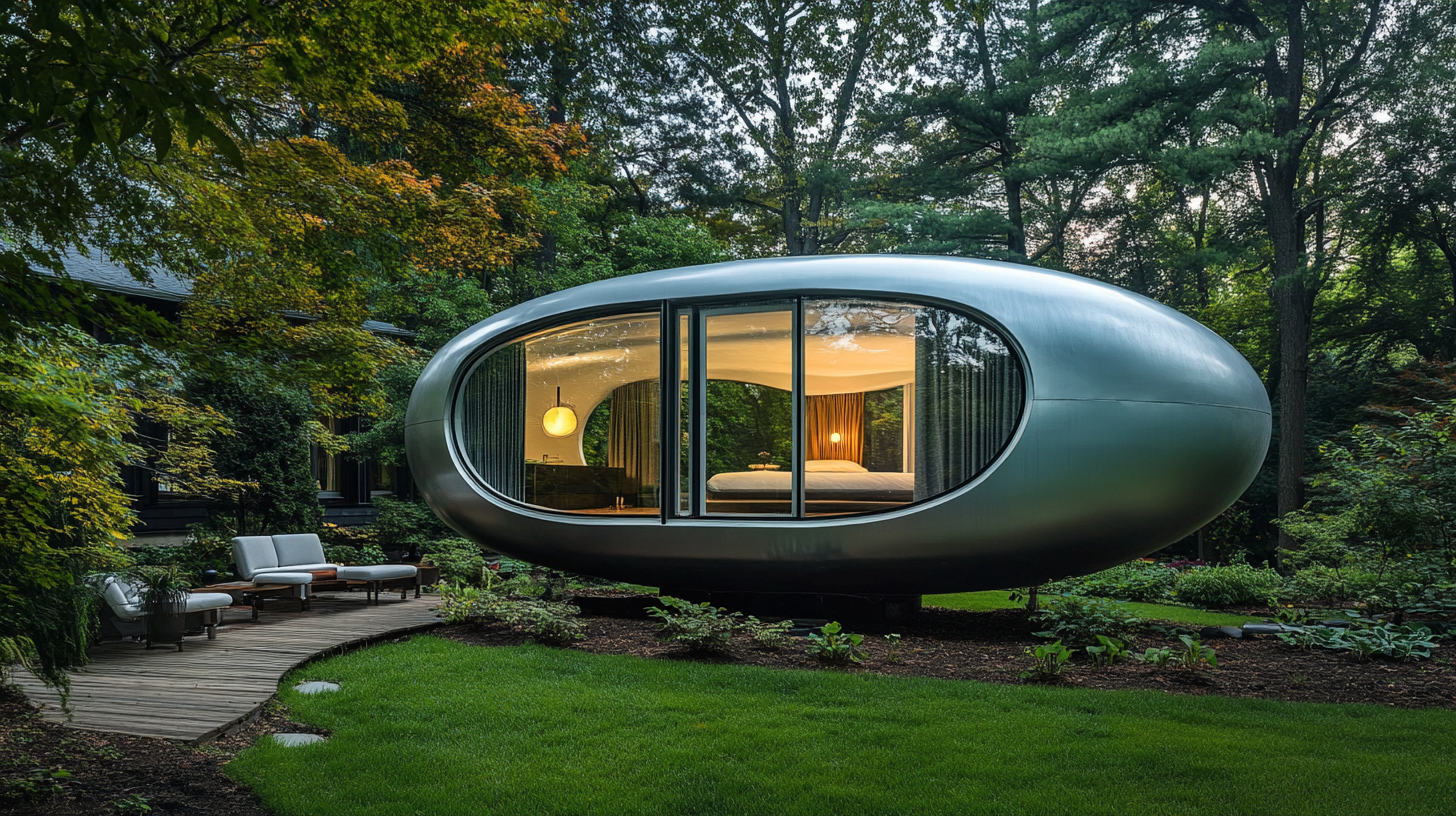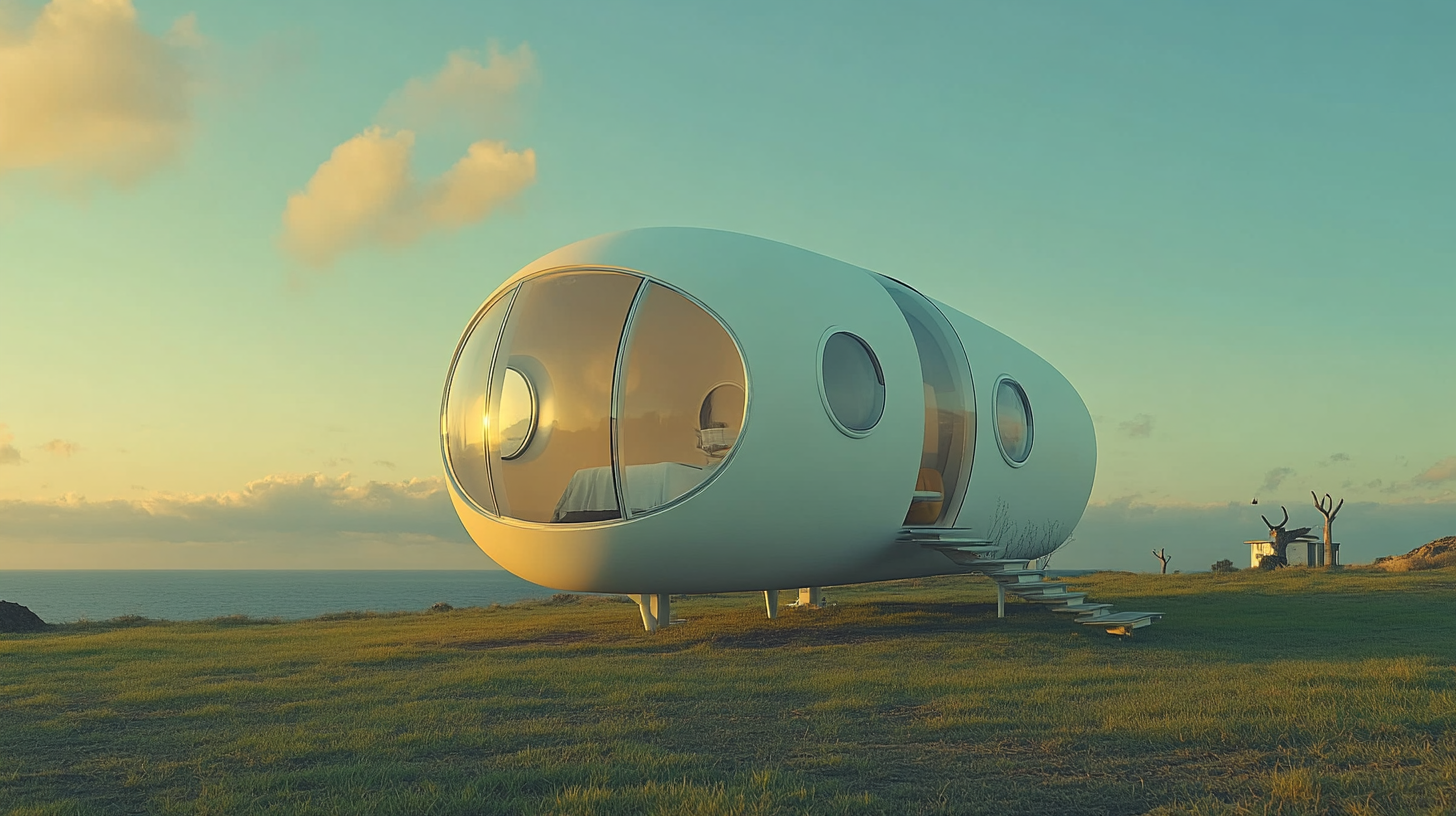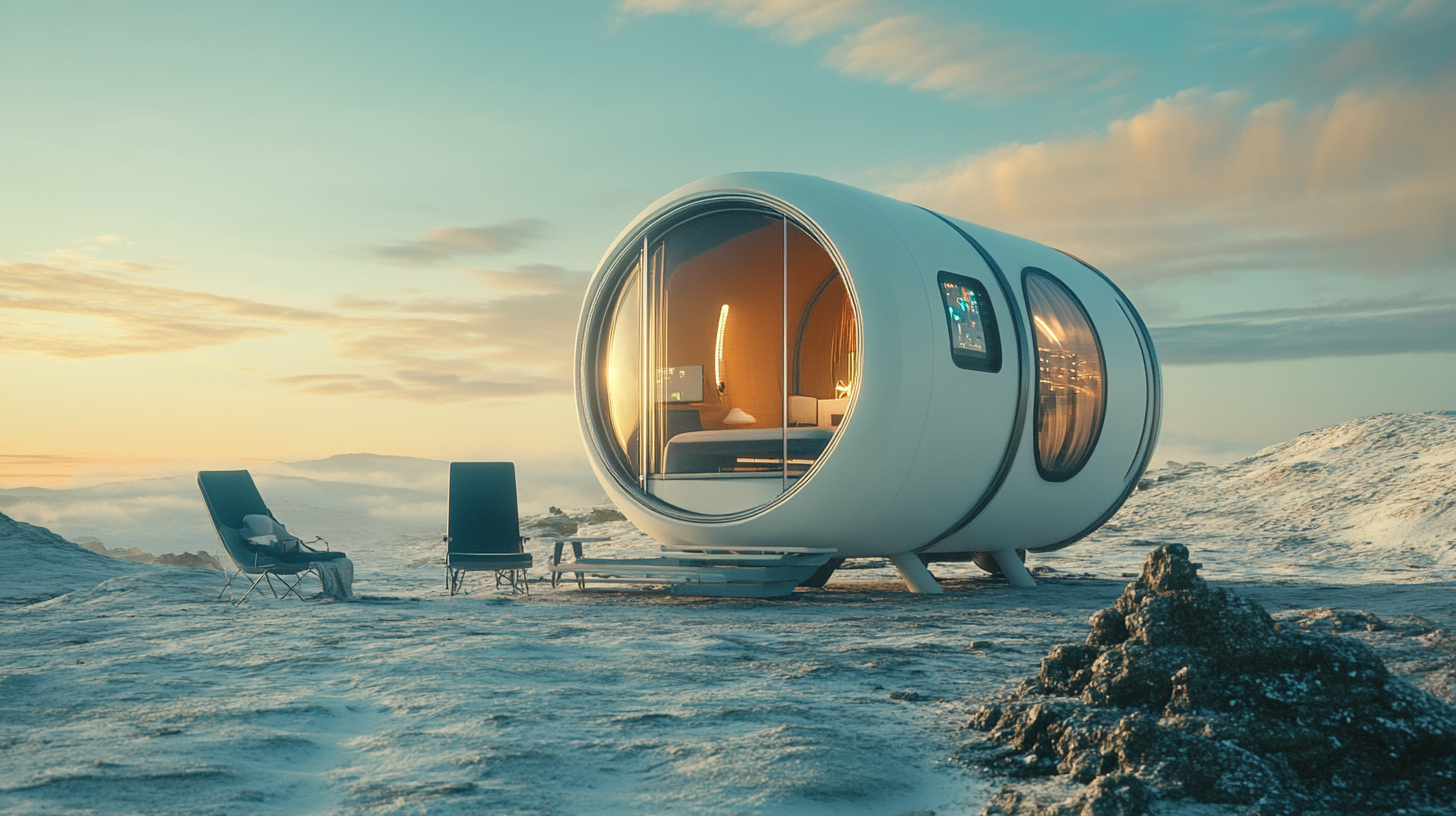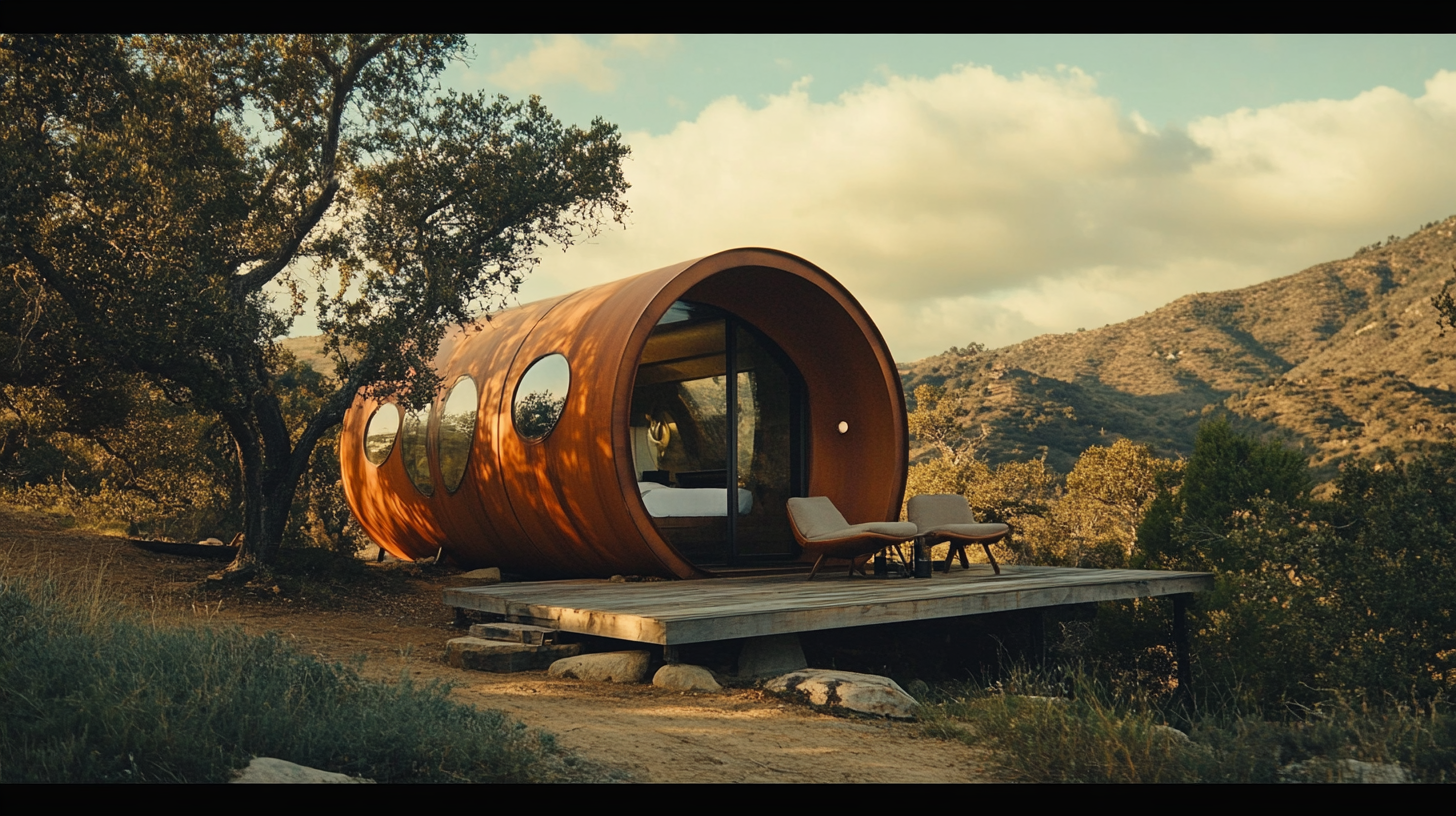
News
Ultimate Guide to Finding the Perfect Capsule House for Your Commercial Needs
In recent years, the demand for innovative and flexible commercial spaces has surged, leading to the rise of the Capsule House Commercial concept. According to a report by Market Research Future, the global modular construction market is projected to reach USD 157 billion by 2025, growing at a CAGR of 6.5% from 2019. This shift reflects not only a desire for efficiency and cost-effectiveness but also an increasing recognition of the need for adaptable business environments. Capsule homes, known for their compact and multifunctional design, provide businesses with unique solutions that accommodate various commercial needs without the constraints of traditional real estate.
Moreover, the COVID-19 pandemic has accelerated trends towards less conventional working arrangements, making the Capsule House Commercial model even more appealing. A study from the World Economic Forum highlights that 70% of employees prefer flexible workspaces. This shift in workforce preferences emphasizes the critical role that functional and well-designed spaces play in enhancing productivity and worker satisfaction. As a result, businesses are increasingly seeking out Capsule House solutions to meet their evolving requirements, merging aesthetics with practicality in a way that resonates with contemporary commercial demands.

Understanding Capsule Houses: Benefits for Commercial Use
Understanding Capsule Houses: Benefits for Commercial Use Capsule houses, known for their innovative design and space efficiency, have gained significant traction in commercial sectors, including hospitality, retail, and office solutions. According to a report by MarketsandMarkets, the global modular construction market is predicted to reach $157 billion by 2023, driven by the increasing demand for cost-effective and rapid construction solutions. Capsule houses fit perfectly within this trend, offering a compact and versatile space that can be customized for various commercial applications. One of the key benefits of capsule houses in commercial use is their ability to minimize overhead costs. A case study by the Modular Building Institute revealed that modular construction can reduce building costs by up to 20% compared to traditional methods. This cost-effectiveness can be particularly advantageous for startups and small businesses looking to establish a presence with limited resources. Additionally, the quick assembly and disassembly of these units mean businesses can adapt swiftly to changing needs, ensuring ongoing operational flexibility. Furthermore, capsule houses are designed with sustainability in mind. As reported by the World Green Building Council, building practices that prioritize sustainability not only reduce environmental impact but can also lead to significant financial savings over time. Capsule houses utilize materials efficiently and are often constructed off-site, reducing waste and minimizing disturbances to the surrounding environment. In a landscape where consumers are increasingly conscious of sustainability, adopting capsule houses can enhance a company's brand image and appeal to eco-minded customers.

Key Features to Look for in a Capsule House Design
When it comes to selecting a capsule house for commercial use, certain key features can significantly enhance functionality and user experience. A recent industry report by IBISWorld indicates that the global market for capsule hotels alone is projected to grow at an annual rate of 10.8%, highlighting the increasing demand for efficient and innovative living spaces. To meet this demand, businesses must prioritize specific design elements when choosing a capsule house.
One essential feature is modularity. Capsule houses should be designed in a way that allows for easy reconfiguration to meet different commercial needs, whether it’s a co-working space, a temporary accommodation, or even a pop-up retail shop. According to a McKinsey report, modular construction can reduce building time by 30-50%, thus lowering overall costs. This flexibility not only optimizes space usage but also makes it easier to adapt to changing business models.
Another critical aspect is sustainability. A study by the World Green Building Council found that buildings account for 39% of global carbon emissions. Incorporating eco-friendly materials and energy-efficient technologies can significantly reduce the environmental footprint of a capsule house. Features like solar panels, rainwater harvesting systems, and energy-efficient HVAC systems are not just good for the planet; they can also lead to substantial savings on energy costs in the long run.
Lastly, the integration of smart technology can greatly enhance the user experience. With IoT devices becoming increasingly prevalent, incorporating smart locks, climate control, and occupancy sensors can provide guests and users with convenience and security. A report by MarketsandMarkets suggests that the smart building market is expected to grow from $82 billion in 2020 to $300 billion by 2025, illustrating the urgency for commercial spaces to adapt to these advancements. By focusing on modularity, sustainability, and smart technology, businesses can ensure they find the ideal capsule house tailored to their commercial needs.

Assessing Location and Infrastructure Needs for Your Capsule House
When searching for the perfect capsule house to suit your commercial needs, assessing the location is paramount. The ideal site not only ensures visibility and accessibility for your target customers but also aligns with your business model. For instance, if you're focusing on a trendy demographic, urban locations with high foot traffic may be essential. Conversely, if your capsule house aims to cater to a niche market or offer a tranquil escape, a quieter, suburban area might serve you better. Examining proximity to complementary businesses—such as cafés, shops, or recreational facilities—can also enhance your capsule house’s appeal.
Infrastructure is equally critical when considering your capsule house. Reliable utilities, including water, electricity, and internet service, are non-negotiable for any commercial operation. Evaluate the current infrastructure to ensure it meets your business requirements. Furthermore, consider logistics such as delivery access and parking arrangements, which can significantly impact both operational efficiency and customer experience. A well-thought-out infrastructure plan can facilitate smooth day-to-day operations, allowing you to focus more on growing your business rather than troubleshooting potential issues. By prioritizing these factors, you can create a robust foundation for your capsule house that will support your commercial ambitions.

Budgeting Essentials: Cost Considerations for Capsule Houses
When considering the switch to a capsule house for your commercial needs, understanding the budgeting essentials is crucial to making an informed decision. Capsule houses, while innovative and often cost-effective in the long run, come with initial expenses that cannot be overlooked. Investors must evaluate both upfront costs, such as construction and design, and ongoing operational expenses that cater to utilities, maintenance, and employee needs.
One of the first steps in budgeting for a capsule house is to determine the size and scale that aligns with your business objectives. Larger capsule structures may require a heftier investment but can ultimately offer greater returns through higher occupancy rates. Additionally, choosing the right materials and technology can significantly influence both initial costs and sustainability. Investing in energy-efficient systems can reduce long-term operational costs, thus enhancing profitability.
Moreover, project financing is another critical aspect of budgeting. Unlike traditional brick-and-mortar establishments, capsule houses can often qualify for different funding options, such as microloans or specialized grants aimed at innovative business solutions. By meticulously planning your budget and exploring various financing alternatives, you can navigate the financial landscape of capsule housing effectively, ensuring your business thrives in this modern commercial environment.
Navigating Regulations and Permits for Commercial Capsule Houses
When considering the establishment of a capsule house for commercial purposes, navigating the myriad regulations and permits is a crucial step that can significantly impact your project's success. According to the National Association of Home Builders, permitting and regulatory processes can add anywhere from 5% to 20% to the overall project cost, depending on the location and the complexity of local building codes. Therefore, thorough research and understanding of regional regulations are essential.
In many jurisdictions, capsule homes must comply with zoning laws that dictate land use and building specifications. It's important to consult the local planning department to identify specific zoning requirements that will affect your capsule house. For instance, the International Code Council suggests reviewing regulations on structures' height, density, and use type, which can vary widely from one area to another. Failure to adhere to these guidelines could lead to fines or delays in project approval.
Moreover, obtaining the necessary permits is not only a legal requirement but also a critical step in ensuring the safety and sustainability of your commercial endeavor. The U.S. Department of Housing and Urban Development highlights the importance of building permits in reviewing compliance with safety, health, and environmental guidelines. Engaging with professionals such as architects and builders who are familiar with these regulations can streamline the permit application process, ensuring that your capsule house aligns with both aesthetic expectations and regulatory standards.

